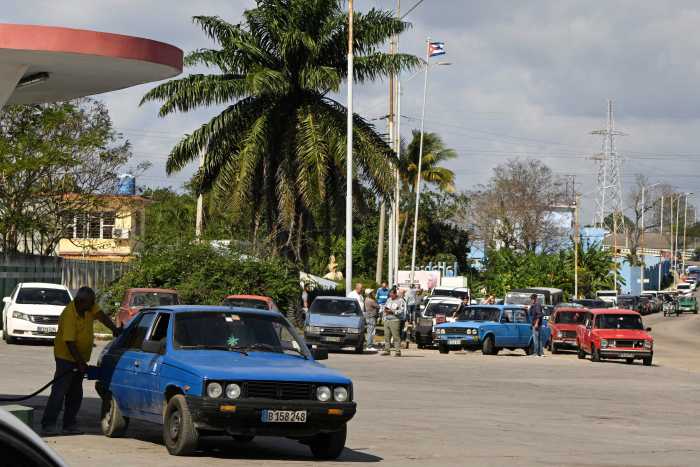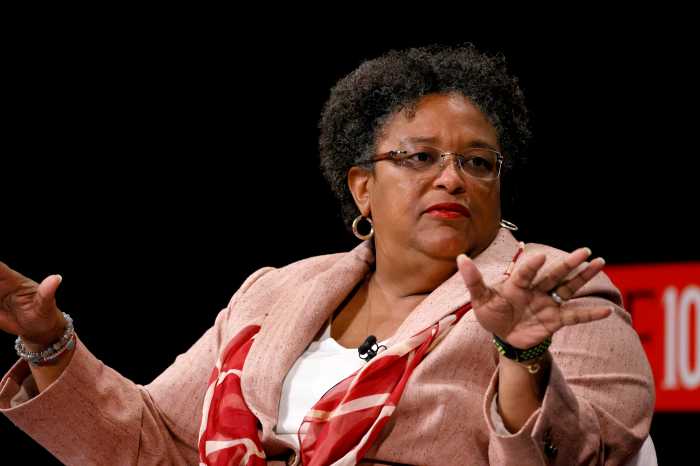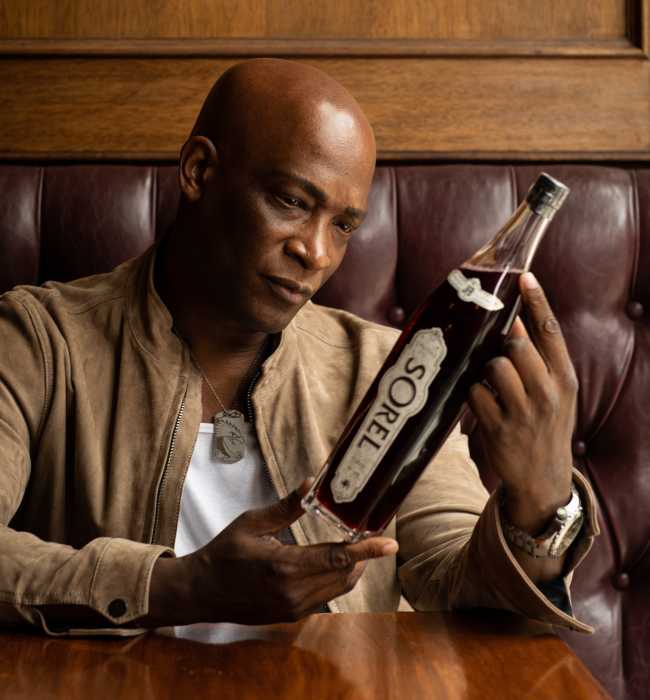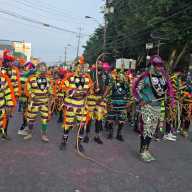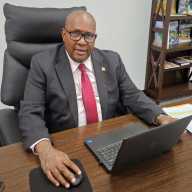The Caribbean media and Caribbean Community (CARICOM) leaders have paid tribute to Guyanese-born veteran regional journalist Rickey Singh, who died in his adopted homeland in Barbados on Saturday, June 5. He was 88.
The Georgetown, Guyana-based CARICOM Secretariat on Monday, July 7, extended condolences to Singh’s loved ones and colleagues, describing Singh as “a Caribbean son of the soil and journalist par excellence.”
CARICOM said, “For more than five decades, Singh served as a pillar of journalism in the region. His unwavering dedication to his craft, sharp analyses, and fearless pursuit of truth earned him respect and admiration across the region,” it said.
“Rickey, as he was popularly known, was a passionate advocate for our regional integration movement. His work facilitated a deeper understanding of the Caribbean Community.
“He had a profound understanding of the region’s political landscape and provided perspectives that were both insightful and instructive,” CARICOM added. “This was invaluable to the people of the Community in the early days of our integration movement.
“His was a strong and consistent voice in defense of press freedom, championing the vital role of independent journalism in strengthening our democracies,” it continued. “The Community mourns the loss of a committed regionalist and media titan. May his legacy continue to inspire future generations of Caribbean journalists.”
In a separate statement, Barbados’ Prime Minister Mia Mottley said that Singh’s death “truly confirms that we are witnessing the end of an era in Caribbean journalism that produced a cadre of veterans who epitomized a spirit of regional cooperation and togetherness even when political leaders still struggled with the concept.
“Whether it was in his native Guyana, Trinidad, or Barbados, which he called home for more than four decades, Rickey’s was a household name,” the Barbadian leader said.
“As we prepare to reflect on our future as a region and the need for solidarity, as we navigate the potentially treacherous waters ahead of us, Rickey’s commitment to regionalism over insularity ought to be top of mind for all of us,” she added.
“Rickey was 100 % a Caribbean journalist,” Mottley continued. “He has left a legacy that any young journalist with a genuine interest in building a reputation based on integrity would do well to emulate.”
The Barbados Nation said Singh, who lived and worked in several Caribbean nations, shared his “opinions and analyses of issues affecting the people of the region.”
Singh’s column, “Our Caribbean,” was published in The Nation. The Nation said he was also a regular contributor to publications in Guyana, Jamaica, and Trinidad and Tobago.
The publication said that, after completing his British Overseas Advanced Level subjects, Singh “landed a job at the Guyana Chronicle, where at age 18, he was invited to write for the Junior Chronicle.
“Singh moved through the ranks from reporter to editor, and his focus eventually became the political beat,” The Nation said. “From the Guyana Chronicle to the Guyana Graphic, he continued to write, drawing the ire of then Prime Minister Forbes Burnham, who often disagreed with his analyses. The state eventually bought the publication, leaving him without a job.”
The Nation said Singh then departed Guyana for Trinidad and Tobago, where he “again fell afoul of a politician, branded a communist for supporting the bloodless coup in Grenada under Maurice Bishop.
“With his work permit not being renewed, he came to Barbados,” The Nation said. “This time, it was late Prime Minister Tom Adam, who took exception to his comments in The Nation and did not renew his work permit.
“Singh’s family – his wife Dolly and the children – remained in Barbados, and he roamed the Caribbean as a freelancer,” it added.
After Adams’ death in 1985, The Nation said Singh was invited to return to Barbados but “refused the work permit in favor of the right to be able to live and work as a citizen.”
The Nation said Singh “continued to pen columns from his home in Strathclyde, St. Michael, Barbados.”
It said Singh “never worked for another newspaper, but his work appeared in the publications which supported him when he was roaming.”
In 2002, The Nation noted that the University of the West Indies Cave Hill Campus conferred an honorary Doctor of Letters on Singh.
“I see journalism as the most vital profession in the postcolonial restructuring of the Caribbean,” The Nation quoted Singh in an interview with The Nation’s Sunday Sun at that time.
“As journalists, we have a social responsibility: we are the gatekeepers of society, the conveyor belt of competing views, helping to stimulate informed public debates,” he added. “Journalism is my life. I think and breathe news.”
The Trinidad Guardian described Singh as “one of its most respected voices” in regional journalism. His work spanned decades, countries, and some of the Caribbean’s most defining political moments.
“Singh’s journalistic journey was marked by courage, tenacity, and a flair for uncovering the untold,” the paper said. “His career was punctuated with dramatic and often perilous moments — from narrowly escaping a lynching while on assignment in Buxton (Guyana), to surviving an encounter with a notorious ‘Death Squad’ in Georgetown’s (Guyana’s capital) Botanical Gardens, and even a near-fatal poisoning incident at work.
“Yet, perhaps most memorable were his bold and unflinching exchanges with some of the Caribbean’s most formidable political figures — encounters that not only defined his career but also helped shape regional discourse,” The Trinidad Guardian added.
Guyana’s Demarara Waves said that the Guyana Press Association (GPA) extended condolences to Singh’s family, friends and regional media colleagues, noting that Singh “contributed to several wire services and publications in the region, including the BBC Caribbean Report and Caribbean News Agency (CANA), as well as services in North America and Britain.”
Demarara Waves said Singh, who was recognized with a Lifetime Achievement Award in Guyana, was also the founder and first president of the now-defunct Caribbean Association of Media Workers (CAMWORK).
Barbados Today said, “Singh earned widespread respect as one of the Caribbean’s most trusted voices on regional politics and current affairs.
“His reporting and commentary spanned over five decades and chronicled many of the region’s pivotal moments,” said the publication, stating that these included the December 1979 uprising in Union Island in the southern St, Vincent Grenadines; the overthrow of Grenadian Prime Minister Sir Eric Matthew Gairy in 1979; the subsequent execution of Grenada’s charismatic leader Maurice Bishop in 1983; the United States intervention in Grenada that same year; the assassination of Guyanese historian Walter Rodney on Jun. 13, 1980; and the attempted coup in Trinidad and Tobago in 1990.
Barbados Today also said that “Singh’s legacy was further shaped by his work in the 1970s as editor of Caribbean Contact, a regional newspaper produced by the Caribbean Conference of Churches and published from Barbados.”
In his tribute to Singh, veteran and highly-respected Barbadian-born journalist Julian Rogers said that Singh was a “Caribbean man, born in Georgetown, but a resident of the region – a journalist, commentator, columnist, mentor, father and so much more.
“Rickey Singh committed more than most to a region that treated him with both respect and disregard,” Rogers said. “He was trusted and distrusted by political leaders, sometimes both at once.
“His voice was widely admired, though not universally embraced,” he added. “Yet, through it all, Rickey endured. He set a gold standard in regional journalism, one few of us could hope to attain.
“But it was that standard that earned him trust, so much so that he had many CARICOM leaders on speed dial,” Rogers continued. “Those of us who covered CARICOM summits knew, if there was a final communiqué, Rickey had helped shape it. When issues became contentious, it was Rickey who got to the kernel of truth, his exposés often leading to quiet resolutions behind closed doors.
“Rickey’s rich legacy is not something left in a will,” he said. “He would not expect us to wait for probate. He would expect us to carry on, understanding the assignment, because this is our Caribbean Nation to serve, wherever we may live. And Rickey showed us how.”
Singh’s body will be interred in Barbados on July 16.


